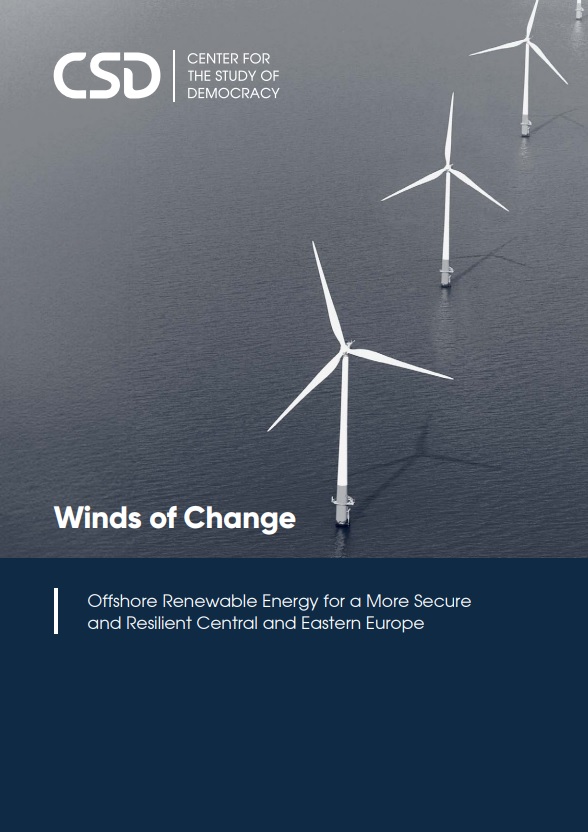Offshore wind energy in Central and Eastern Europe (CEE) is bound to become the cornerstone for accelerating the coal phaseout, strengthening energy and climate security, and enabling the transformation of the industry. The European energy sector is under pressure to swiftly align with the long-term net-zero targets but not at the expense of the system’s resilience and competitiveness. Offshore wind energy stands out as a powerful alternative to fossil fuel-based energy supply in countries with access to the sea, which also has strong financial and institutional support from the European Union. Offshore wind deployment carries large technical, economic, social, and environmental benefits, making it an attractive investment option for the CEE region. This report provides an overview of the potential and progress in offshore wind energy development in Poland, Romania, Bulgaria, and Croatia.
Authors
- Dr. Mariya Trifonova, Senior Research Fellow, Energy and Climate Program, Center for the Study of Democracy; Chief Assistant Professor at Sofia University “St. Kliment Ohridski”;
- Mihnea Cătuți, Head of Research, Energy Policy Group;
- Dr. sc. Hrvoje Mikulčić, Research Assistant, Faculty of Mechanical Engineering and Naval Architecture of the University of Zagreb;
- Michał Smoleń, Head, Energy and Climate Program, Instrat Foundation.
Contributors
- Marius Koeppen, Analyst (CSD);
- German Rueda Orejarena, Analyst (CSD);
- Alina Chiriță (Arsani), Head of Energy Systems Programme (EPG);
- Mihai Constantin, Researcher (EPG);
- Dr. sc. Neven Duić, Full Professor, Faculty of Mechanical Engineering and Naval Architecture of the University of Zagreb;
- Dr. sc. Zvonimir Guzović, Distinguished Professor, Faculty of Mechanical Engineering and Naval Architecture of the University of Zagreb;
- Wojciech Żelisko, Analyst, Energy and Climate Program, Instrat Foundation.
Publication
This publication is financed within a project, which is part of the European Climate Initiative (EUKI) of the German Federal Ministry for Economic Affairs and Climate Action (BMWK) and implemented by the Center for the Study of Democracy, the Energy Policy Group, the Instrat Foundation and the Faculty of Mechanical Engineering and Naval Architecture of the University of Zagreb. The opinions put forward in this publication are the sole responsibility of the authors and do not necessarily reflect the views of the Federal Ministry for Economic Affairs
and Climate Action (BMWK).


